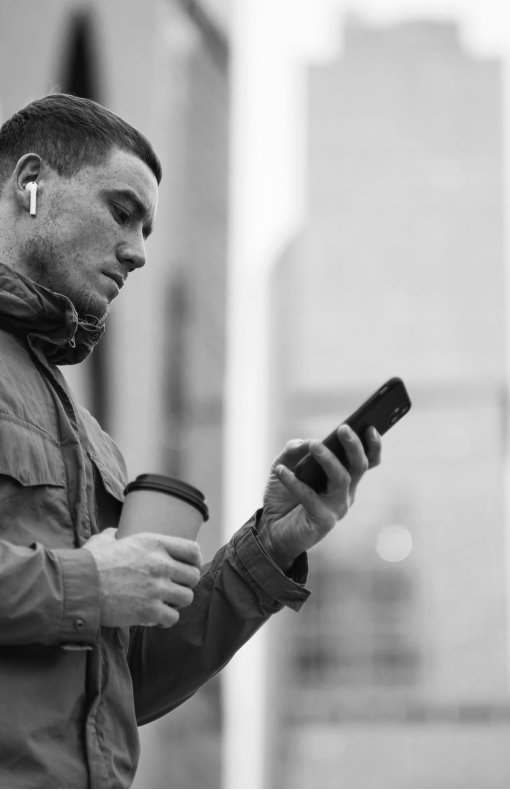
Banking from your phone?
Download our app
Welcome Back
You can access your accounts here.

Banking from your phone?
Scan the code to download our app.


Mobile Security Tips
For more information or to speak with a Financial Education Specialist, please contact us at FinancialEducationAFB@afbank.com.
1. Use common “web” sense.
2. Increase your phone’s security.
When logging into your Online Banking account, follow the same best practices to protect your bank account when browsing the internet or checking email. For example, don’t click on links sent via email or text from people you don’t know. While the link may appear legitimate, it may send you to a malicious website. Also, be careful about opening files and downloading applications from sites you aren’t familiar with.
- Review your device's user manual to understand better what security options are available on your phone.
- Take advantage of third-party authentication functionality within your apps to add another layer of security.
- Turn off your Bluetooth connection when it's not in use to prevent attackers from taking advantage of that connection and downloading malware to your device.
- Be careful about posting your cellphone number online. Attackers often use software to browse websites for cellphone numbers, then target the numbers for attacks and spam. You can limit your risk of becoming a victim by limiting the number of people with access to your number.
Use your device's phone lock or keypad lock function when you're not using it. Password protection on your device makes it much more difficult for someone else to access your sensitive information. Also, make sure your device is stored in a secure location.
Regularly clear your browser history and delete old text messages and other files you don’t need from your devices. Also, before recycling, selling, or giving away your device, remove all sensitive information from it.
5. Make sure you know how to locate your phone.
Keep a record of your phone's make, model, and serial number in case your device is ever lost or stolen.
6. Download only from reputable sources.
Avoid downloading files from sites you don’t trust. Many sites offer games and other software you can download onto your cellphone or tablet. It would help if you were wary of downloadable software like this, as it could include malware. If you’re getting files from a supposedly secure site, look for its website certificate first.
We also encourage you to download the most current version of our app, which is supported on Android and iPhone devices.
We also encourage you to download the most current version of our app, which is supported on Android and iPhone devices.
7. Log off when you’re done.
Rather than just closing the Armed Forces Bank Mobile Banking app for online or mobile banking, log off when you finish using it for your security.
8. If your phone gets stolen, alert your service provider right away.
Notify your service provider as soon as possible so they can disable your device and reduce the risk of someone accessing your information. Then, remove your mobile phone number from your Online Banking profile. Log into Online Banking and select Update Profile. Or, call or visit your nearest branch.
As always, you’ll want to be on the lookout for suspicious activity on your accounts. If you see anything that concerns you, Log into Online Banking or call or visit your nearest branch.
iPhone is a trademark of Apple Inc., registered in the U.S. and other countries. Android is a trademark of Google Inc.